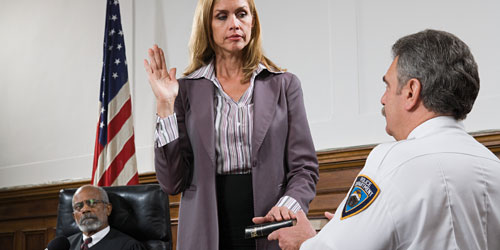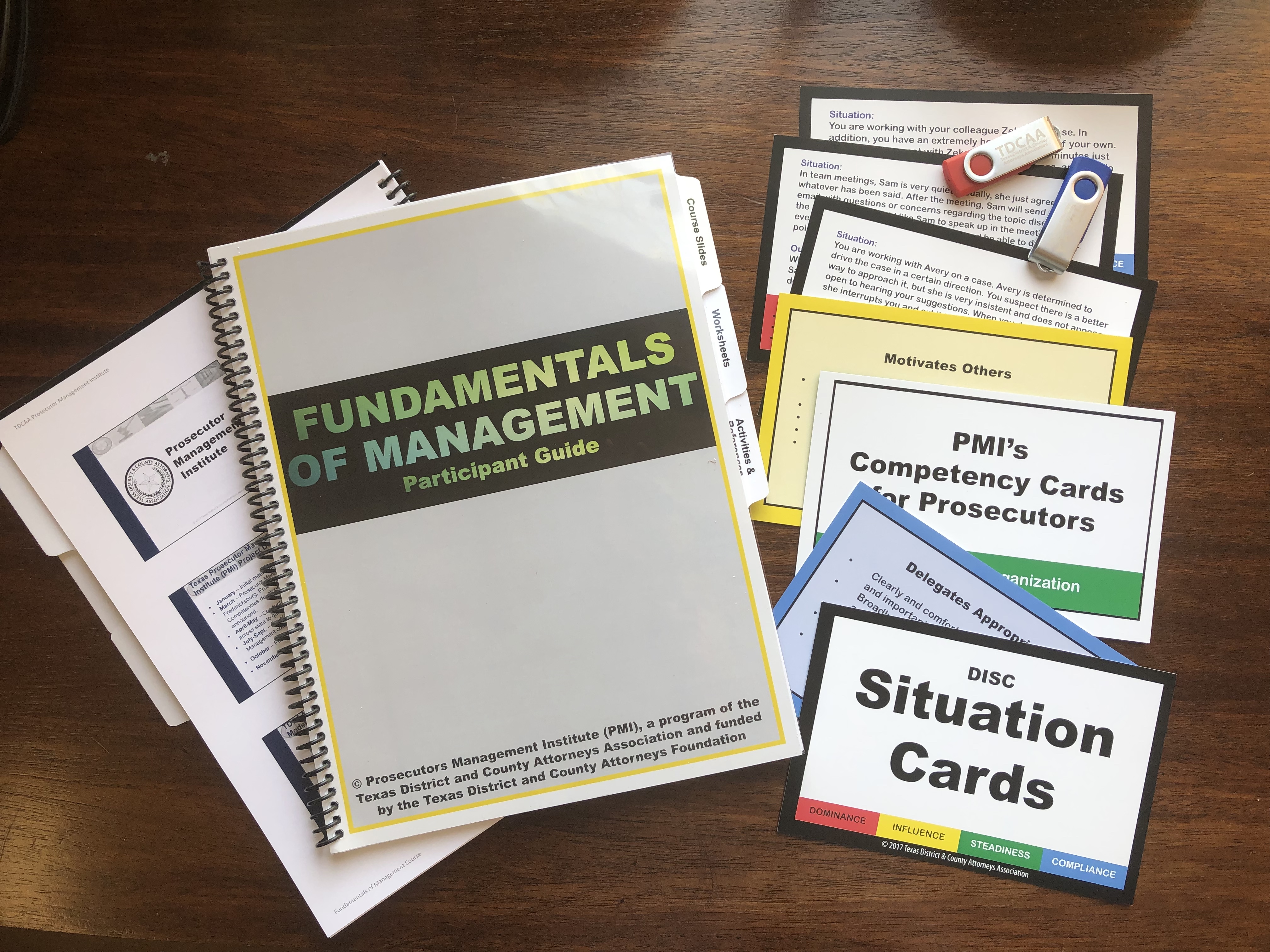A mere 31 days remain in this regular session. Let the mensis terribilis commence!
Preview
Legislators are about to start their sprint to the finish line. That means more time spent on their respective floors and less in committees. Topics to be discussed today and next week include civil asset forfeiture reforms, policing reforms, CPS reforms, and various other we-don’t-trust-the-institutions-we-created reforms. Read on for details!
House Bill 17
Yesterday, the House debated and passed on second reading HB 17 by Cook (R-Mansfield), the prosecutor accountability bill that defines misconduct for purposes of removing a prosecutor from office to include implementing categorical non-prosecution policies. The debate was spirited, and the author accepted several floor amendments to address potential unintended consequences of his legislation before it eventually passed on second reading by a 92–55 margin. (Update: The bill was finally passed without further change on third reading today and will now be sent to the Senate for further consideration.)
Current indications are that the Senate is likely to act on HB 17 in lieu of pushing for the House to accept SB 20 by Huffman (R-Houston), which the Senate sent over to the House weeks ago. However, the Senate is unlikely to approve all of the amendments to HB 17 adopted by the House, so the bill will have to navigate the process in that upper chamber anew and possibly go to a conference committee before we have more clarity on what a final version might look like.
If you want to watch the second reading debate on HB 17, click HERE (starting at the 3:00:02 mark and lasting 48 minutes).
If you want to read the limited portion of the Q&A discussion that was transcribed and printed in the House journal, click HERE.
Grand jury reforms
Just as the famous swallows return to Mission San Juan Capistrano every spring, every session the legislature considers a bill on grand jury reforms. This session that bill is HB 1258 by S. Thompson (D-Houston), and it is a doozy in much the same way that many “prosecutor accountability” bills have been this session—sanctions, civil liability, onerous conditions, and more.
Bills like this always tend to get prosecutors off their seats in opposition, and this session was no exception. When the bill was heard Tuesday evening, respectful testimony against the bill was offered by 46th Judicial DA Staley Heatly, Cherokee County DA Elmer Beckworth, 8th Judicial DA Will Ramsay, San Jacinto County Criminal DA Todd Dillon, and Kaufman County CDA Erleigh Wiley, and there were numerous other prosecutors who registered opposition in person without testimony. The bill was left pending in committee.
Retirement benefits
Elected felony prosecutor retirement benefits—which are tied to those officials’ state-established salaries—have had a rough go of it the last several sessions. First, retired DAs missed out on an increase in benefits in 2019 when the new tiered judicial branch salary increases left the benchmark pay at $140,000 for already-retired former prosecutors. Then in 2021, the legislature abolished the defined benefits plan for future elected DAs in favor of a cash balance plan (think 401(k)). Now comes the latest blow—one that our friends at ERS couldn’t be bothered to tell anyone about until we dragged it out of them.
The latest House committee substitute version of SB 1509 by Huffman (R-Houston)/Bonnen (R-Friendswood) “relating to the service retirement eligibility and benefits of certain members of the Employees Retirement System of Texas” would repeal language that currently grants retired DAs automatic increases in retirement benefits when judicial and DA salaries increase. That was a nice feature of the DA retirement plan for four decades, but according to ERS, it is now too expensive to continue if the legislature gives sitting judges and prosecutors future pay raises. For instance, the pay raise being considered in the House version of HB 1 is estimated by ERS to cost the retirement system $30 million on top of the salary cost to the state budget. Instead, the retirement system people claim that future judicial/prosecutor pay raises will not be actuarially feasible for the state unless retirement benefits remain tied to the current benchmark salary figure.
Senate Bill 1509 has been recommended for the House Local and Consent Calendar and given that it is authored by the Senate Finance chair and sponsored by the House Appropriations chair, the repeal of this beneficial language is about as sure a thing as there can be. But … could there be a reason ERS all of a sudden decided they needed this change in the waning days of a session in which a judicial pay raise is being considered by the budget conference committee behind closed doors? Some of you have asked us about the prospects of that raise and we always advise you to expect little from the legislature if you want to avoid disappointment, but some of you may be tempted to read into this unexpected change what you will. And who are we to say otherwise? After all, everyone is entitled to their own dreams. Just remember that the legislature is an accomplished dream-buster.
Beyond speculation about a raise, this adverse change also makes us wonder whether elected felony prosecutors should explore pulling the plug on ERS membership and consider returning to the Texas County and District Retirement System (TCDRS) for your retirement benefits. That will be something to talk about after the dust of this session settles. Meanwhile, if you have thoughts or questions about any of this, please contact Rob.
Funding updates
In other funding- and salary-related news:
The House County Affairs Committee approved SB 22 by Springer (R-Muenster)/Guillen (R-Rio Grande City) on Monday. This is the bill that would provide sheriffs and prosecutors in most counties with additional funding for hiring new staff and retaining existing employees. The committee report from that vote—which includes the official committee substitute version as voted out by the committee, the vote tally, and related paperwork—has still not been turned into the office that posts that information online and then refers it to the Calendars Committee for further consideration. There are a lot of rumors floating around about the latest language in the bill—including competing changes that conflict with each other and which no one will claim as their own—so rather than speculate, we’ll let the dust settle and then report on what we know to be true next week.
On Tuesday, the House granted preliminary approval on second reading to HB 438 by Schofield (R-Katy) to tie judicial branch salary increases to future changes in the consumer price index. However, rumor-fueled remorse quickly set in among some Republican members who were told the bill might feather their own retirement nest. (It does not, but their momentary panic shows how sensitive an issue that is for those worried about being primaried over it.) The confusion led to the bill being postponed until next week for final approval on third reading. If passed into law, any resulting inflationary raises for judges and elected prosecutors would not go into effect until September 1, 2025 (2+ years from now). However, the bill still has to be approved by the Senate, which has no companion version of this proposed raise and has historically been cool toward automatic raises in the past.
Finally, the House Higher Education Committee heard HB 4487 by Smith (R-Sherman) to expand rural prosecutor student loan repayment to include public defenders, but the bill was left pending and it will soon run out of time to beat various House deadlines unless it gets moving in a hurry.
Sent to the governor
It took 106 days for the first of our tracked bills to make it through the legislative gauntlet and onto the governor’s desk. That bill is … <drumroll> … SB 497 by Zaffirini/Lozano relating to “the processing and sale of kratom and kratom products; providing civil penalties; creating a criminal offense.” Exciting stuff, eh?
This list will start to grow in the coming weeks, but for now, most legislators’ focus will remain on getting their own bills out of their own chambers.
One chamber down, one to go
The bills on this next list are halfway home. Speak soon or forever hold your peace.
The following House bills have passed the House:
HB 6 by Goldman (fentanyl penalties)
HB 17 by Cook (removal of prosecutors)
HB 63 by Swanson (limiting preliminary investigations into child abuse allegations)
HB 213 by Moody (early parole consideration for youthful violent offenders)
HB 218 by Moody (reducing penalties for possession of marijuana and THC substances)
HB 467 by Craddick (extending statutes of limitations for certain assaultive offenses)
HB 1130 by Spiller (allowing certain prosecutors to accept ad litem appointments)
HB 1207 by Guillen (no statute of limitations for tampering with a body)
HB 1300 by Geren (changing penalties for tampering with evidence)
HB 1603 by Guillen (allowing JPs and muni judges to use private pro tem prosecutors in certain Class C cases)
HB 2696 by Howard (consent in sexual assault cases)
HB 3956 by Smith (expanded DNA collection upon arrest)
HJR 107 by Price (extending mandatory judicial retirement age by five years)
The following Senate bills have passed the Senate:
SB 1516 by P. King (revising procedures and venue for writs of habeas corpus)
SB 2208 by Parker (neighboring county venue for election-related crimes)
SB 2593 by Springer (defense to prosecution for cops using less-lethal devices; retroactively applies to pending prosecutions)
Other action
Confession: We’ve pretty much lost track of what random bill has emerged from which various committee in what kind of form. It happens every session around this time, and we’re not going to try to hide it. We’re just going to take our “L” and live with it. Sorry, but a man’s got to know his limitations. (Feel free to reach out if you have a question about the status of a particular bill, though.)
Future floor debates
Bills up for debate on the House floor today include (in order of their appearance on the calendar):
HB 3659 by Hefner (limitations on civil asset forfeitures) (*update: passed without debate this morning)
HB 412 by S. Thompson (requiring corroboration of undercover drug officers’ testimony) (*update: passed without debate this morning)
HB 730 by Frank (limiting child abuse investigations and parental termination lawsuits)
HB 1715 by Canales (retroactive expunction of misdemeanor deferred adjudications)
HB 469 by Smith (requiring good cause for sequestration of certain juries)
HB 476 by Jo. Jones (limiting pretrial detention)
Bills to be debated on the House floor next week include (in docketed order):
HB 3474 by Leach (omnibus judicial branch administration bill)
HB 247 by S. Thompson (subsequent writs upon permission of prosecutor)
HB 1163 by Smith (creating offense of boating while intoxicated with child passenger)
The Senate Intent Calendar for Monday is pretty light on your issues (yay!), but that can change on a daily basis so if you want to keep up at home, you can check daily Senate Intent Calendars HERE.
Future committee hearings
Committees are now concentrating on hearing bills from the other chamber. They are also often dispensing with many notice rules, suspending those rules at the drop of a hat to hear bills with little notice. We will share what we can, but if you have a particular interest in any bill, you might consider tracking it yourself through the free public TLO system to stay up-to-date.
Some of the bills scheduled to be heard in committees next week are listed below. For the full agenda of each committee, click on the link to the committee itself. Subsequent committee postings may be added later, so check our website for the latest information.
Monday, May 1
(None posted yet)
Tuesday, May 2
Senate Criminal Justice – 8:30 a.m., E1.016
- HB 279 by Jetton relating to the trafficking of disabled individuals
- HB 467 by Craddick extending limitations periods for filing certain assaultive offenses
- HB 598 by Shaheen criminalizing possession of animals by certain offenders
- HB 767 by Harless relating to entering stalking bond conditions into TCIC
- HB 914 by Hefner relating to criminal offenses concerning temporary tags
- HB 1088 by A. Johnson allowing OAG to represent CSCD employees in civil suits
- HB 1161 by Meyer relating to OAG’s address confidentiality program
- HB 1207 by Guillen extending limitations periods for tampering with a dead body
- HB 1910 by Anchia creating a presumption in certain forgery cases
- HB 2183 by Stucky relating to the temporary appointment of county jailers
- HB 2899 by Plesa relating to the impoundment of vehicles used in racing crimes
House Criminal Jurisprudence – 10:30 a.m. or upon adj./recess, E2.016
- SB 23 by Huffman imposing a minimum sentence for certain offenses involving use of a firearm
- SB 338 by Hinojosa prohibiting the use of hypnotically induced statements at trial
- SB 402 by Whitmire granting trial preferences for murder & capital murder charges
- SB 947 by P. King increasing penalties for damages related to critical infrastructure facilities
- SB 1653 by Huffman relating to the offense of promotion of prostitution
- SB 1717 by Zaffirini relating to the offense of stalking
Wednesday, May 3
House Judiciary & Civil Jurisprudence – 8:00 a.m., E2.016 <added>
- SB 21 by Huffman relating to complaints against current and former judges
- SB 2310 by Hinojosa granting longevity pay to certain elected prosecutors
<< Please visit our Legislative webpage for the latest committee postings.>>
Austin-bound?
If you are ready to clear your calendar and come to Austin for a few days to weigh in on the bills we’ve discussed this session, please call or email Shannon to reserve that week ahead of time. Ditto for any questions you might have—call or email Rob or Shannon to get the scoop before you make plans.
Scattershooting
Here are some recent stories you might’ve missed:
- “Tensions rise between Texas’ top leaders as legislative session rolls toward finish line” (Dallas Morning News)
- “‘A way to throw kids away’: Texas’ troubled juvenile justice department is sending more children to adult prisons” (Texas Tribune)
- “Texas House OKs marijuana decriminalization bill again as Senate hurdles remain” (Houston Chronicle)
- “Why Texas lawmakers are looking to end the ‘dead suspect loophole’” (Corpus Christi Caller-Times)
- “Fentanyl test strip bill stalled in Texas Senate as the drug crisis grows” (Dallas Morning News)
- “Sex, Threats, and Late-Night Phone Calls: The Allegations from Inside Jolanda Jones’s Legislative Office” (Texas Monthly)
- “How Rich Is the US Supreme Court?” (Bloomberg)
Quotes of the Week
“Rouge [sic] DAs in Texas – your time is up. #HB17 by @DavidCookTexas to ensures [sic] public attorneys are doing their job by enforcing the law as the state legislature intended, not pushing a political agenda.”
—Tweet on “Reining in Rogue DA’s” by the Texas House Republican Caucus on the day of the House floor debate over HB 17. (“Rouge”? So now we can now add “prosecutors wearing make-up” to the list of those who must be punished by the Lege this session? Sure, why not.)
“[For] prosecutors … that want to legislate instead of prosecute, I would urge that they run for a seat in the house as opposed to running for DA.”
—State Rep. David Cook (R-Mansfield), speaking on the House floor in favor of the passage of HB 17, his bill on removal of prosecutors.
“I have to go. I’m going to get in trouble.”
—Christopher Stanford, to another driver whom he rear-ended before running away from the scene and hiding. Mr. Stanford was subsequently sentenced to life in prison in Parker County for felony DWI. Read why HERE.
“Stoked for some tasty waves on the Texas Coast this summer after #txlege hits its gnarly Sine Die!”
—Tongue-in-cheek tweet by House Speaker Dade Phelan (R-Beaumont), in apparent response to Lt. Gov. Dan Patrick (R-Houston) calling him “California Dade” last week. (You’ll have to click this link to see the visuals that accompany his tweet)
###



